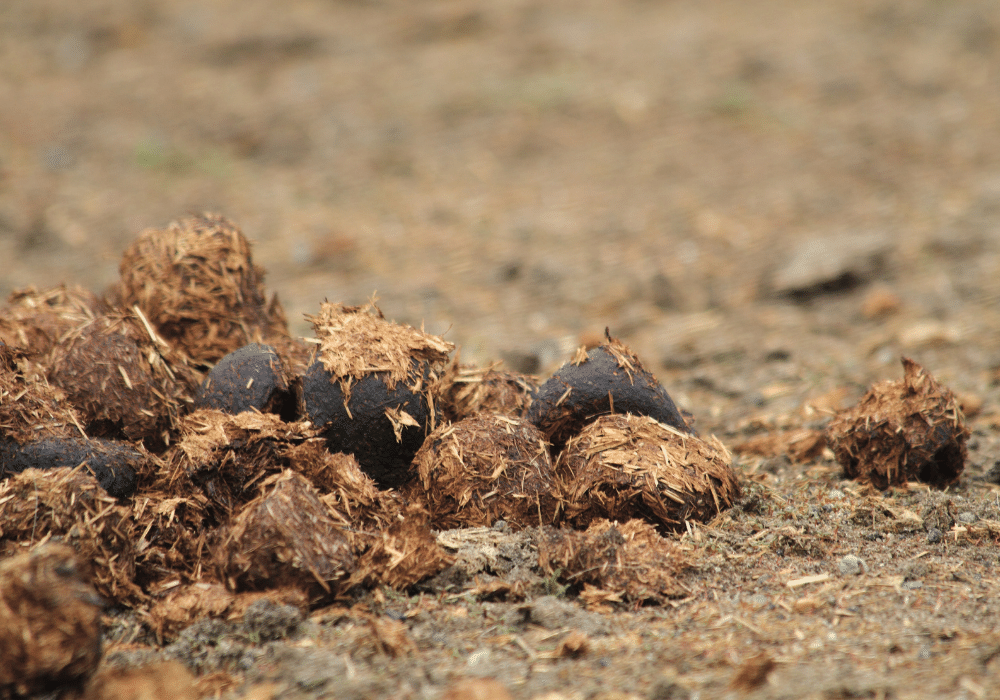An effective worming schedule is an essential part of keeping horses happy and healthy. Regular worm egg counts are recommended for all horses, and worming should be carried out when necessary, using the right product. Understanding when to worm your horse (as well as when not to) is crucial to managing parasites and minimising parasitic resistance to worming products. This blog article aims to answer the question: How often should I worm my horse?
We advise that most healthy adult horses require worm egg counts throughout the grazing season, alongside saliva tape worm tests twice per year. We promote selective horse worming programmes to ensure your horses are wormed when needed but not given drugs unnecessarily. The need for worming is calculated for each horse based on their own individual risk factors, which your vet can help you determine. This approach contributes to the sustainable use of wormers, which should help limit anthelmintic resistance.
Why Is Worming Important for Horses?
Parasite control in horses is key to their wellbeing and performance, and a targeted worming programme should be part of your horse's preventative healthcare routine. Worm infestation can cause irreversible internal damage, colic and long-term health problems.
Why is a Tailored Horse Worming Schedule Important?
The traditional approach to parasite control was frequent treatment with anthelmintics (wormers) for all horses on the yard. However, the increasing levels of anthelmintic resistance are becoming a problem, and a new approach is required.
Parasite resistance is a term used when a particular species of parasite, that was previously eliminated by a particular drug, is no longer eliminated by that drug. Our traditional overuse of anthelmintics has seen an increase in the resistant population of parasites and there are no new anthelmintic drugs on the horizon.
If we continue to overuse wormers, this problem will continue to escalate. Ultimately, this could lead to a situation where we have no effective anthelmintics to treat horses with large worm burdens.
The CANTER Initiative (Controlling ANTiparasitic resistance in Equines Responsibly) has a website with some useful information for horse owners, including advice on controlling parasites and assessing your horse’s risk profile.
The Role of Worm Counts for Horses
Worm egg counts are used to determine whether your horse genuinely needs worming. Only those with a high parasite burden require treatment, as a normal, healthy horse can manage a low parasite burden with no detrimental effects on their health. The idea behind this is to reduce parasite resistance and overuse of anthelmintics.
Other Ways to Minimise Your Horse’s Worm Burden
As well as targeted worming and regular faecal worm egg counts, there are other ways to control worms that will also help us minimise anthelmintic resistance. For example, regularly removing droppings from your horse’s field and avoiding overstocking are two ways to control parasites that can help minimise our reliance on wormers.
Overstocking is when too many horses are grazed on an area of land. This can cause the pasture to become “horse sick”, creating the perfect environment for worms to thrive. Ensuring there is enough land and grazing for the number of horses, and keeping the pasture clean, will help control parasites and can help prevent a range of other health problems.
Manage Your Horse’s Worming Schedule With Avonvale Equine Vet Practice
Avonvale Equine Vet Practice offer an annual worm control package, which enables owners to worm their horses effectively without overusing wormers. Our annual worm control package includes 4 worm egg counts, 1 weigh tape, 2 x Equisal tapeworm saliva tests and unlimited advice from our independent equine vets.
Avonvale Equine Vets | Independent Equine Vet Practice
Our highly qualified and dedicated equine vets, based in Upton, near Banbury, are experienced in diagnosing and treating a range of conditions. We offer free weekly zone visits for routine and non-emergency appointments, covering Warwickshire, Oxfordshire, Gloucestershire and Worcestershire. If you are looking for an independent, reliable equine vet practice with a team of experienced equine vets, Register your horse, pony, donkey or mule with us today.









